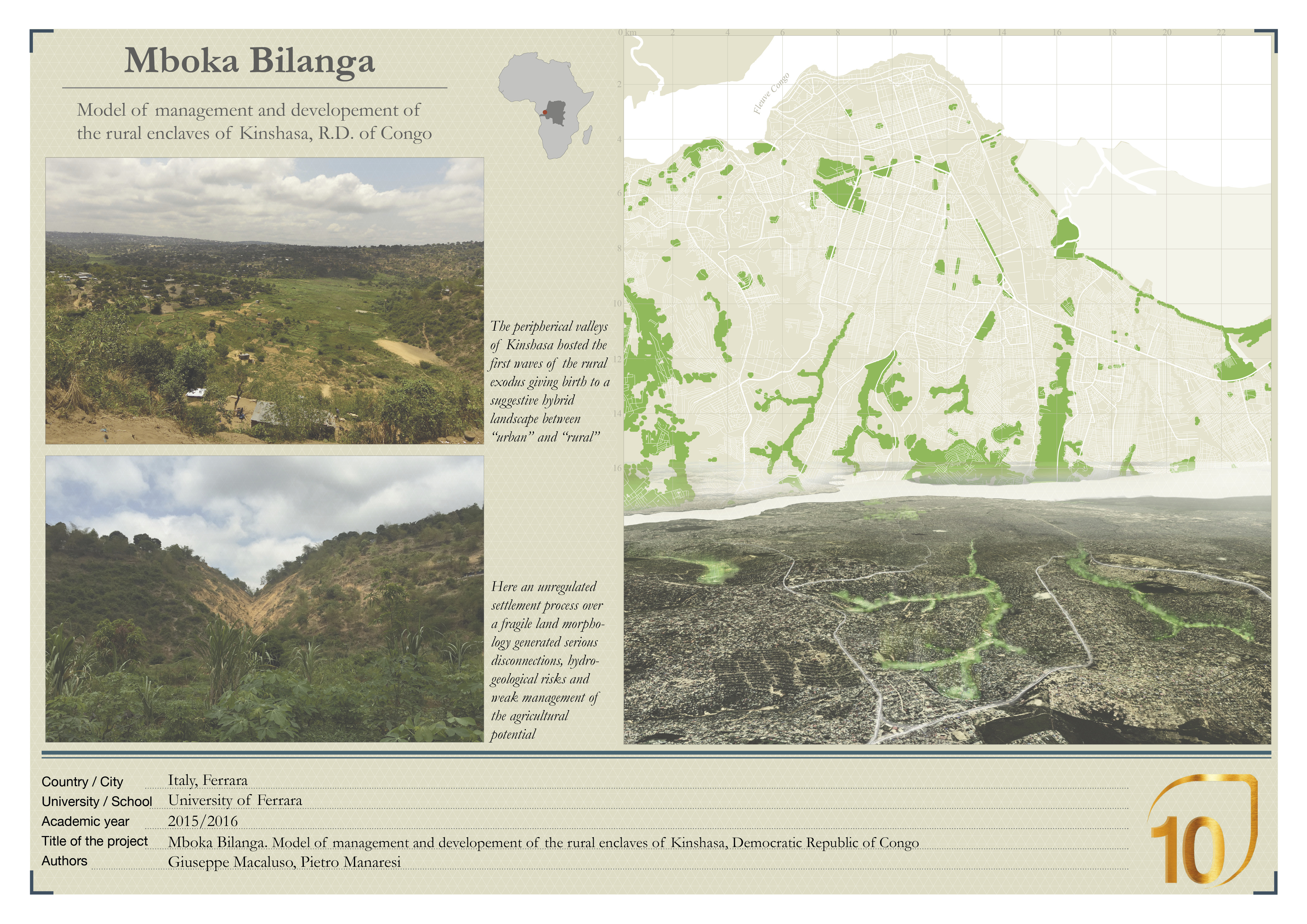
MBOKA BILANGA. Model of management and development of the rural enclaves of Kinshasa, D.R. of Congo.
Landscape architecture and infrastructures
University of Ferrara
Mboka Bilanga is a project for a southern megalopolis facing the lack of infrastructure and the outcomes of an ungoverned urban sprawl. The topic of the research is a new design approach for the urban-scape of Kinshasa - DR of Congo - taking into account the potential and creativity of informal solutions and local tactics.
The aim is to convert the kinois' valleys, nowadays considered as a waste product of the megalopolis, into a repertoire of sustainable urban strategies based on a wise management of the local environmental resources such as agriculture. These valleys hosted the first waves of the rural exodus, giving birth to a suggestive hybrid landscape between “urban” and “rural”. Literally translated from Lingala, the vehicular language of Kinshasa, Mboka Bilanga means city-field, a term that points out the presence of a strongly rural area nested in a recognizable urban context.
Here an unregulated settlement process over a fragile land morphology generated serious disconnections, hydrogeological risks and weak management of the agricultural potential. The strategy is based on the replicable nature of local based and small-scale survival tactics that have to be intertwined to gain an urban relevance. The Selembao valley is used as a model to present the three main strategic actions: to defend the valley from hydrogeological risks, to improve agriculture, to link the city fragments. The valley is divided in smaller territorial unities to simplify the managing of a self-empowering cycle based on the agricultural profits and to adapt the strategy to the singular weakness and potential of each unit.
Consolidate, Farming and Connect are three actions striving for create synergy among singular resilient activities to form an urban strategy.
